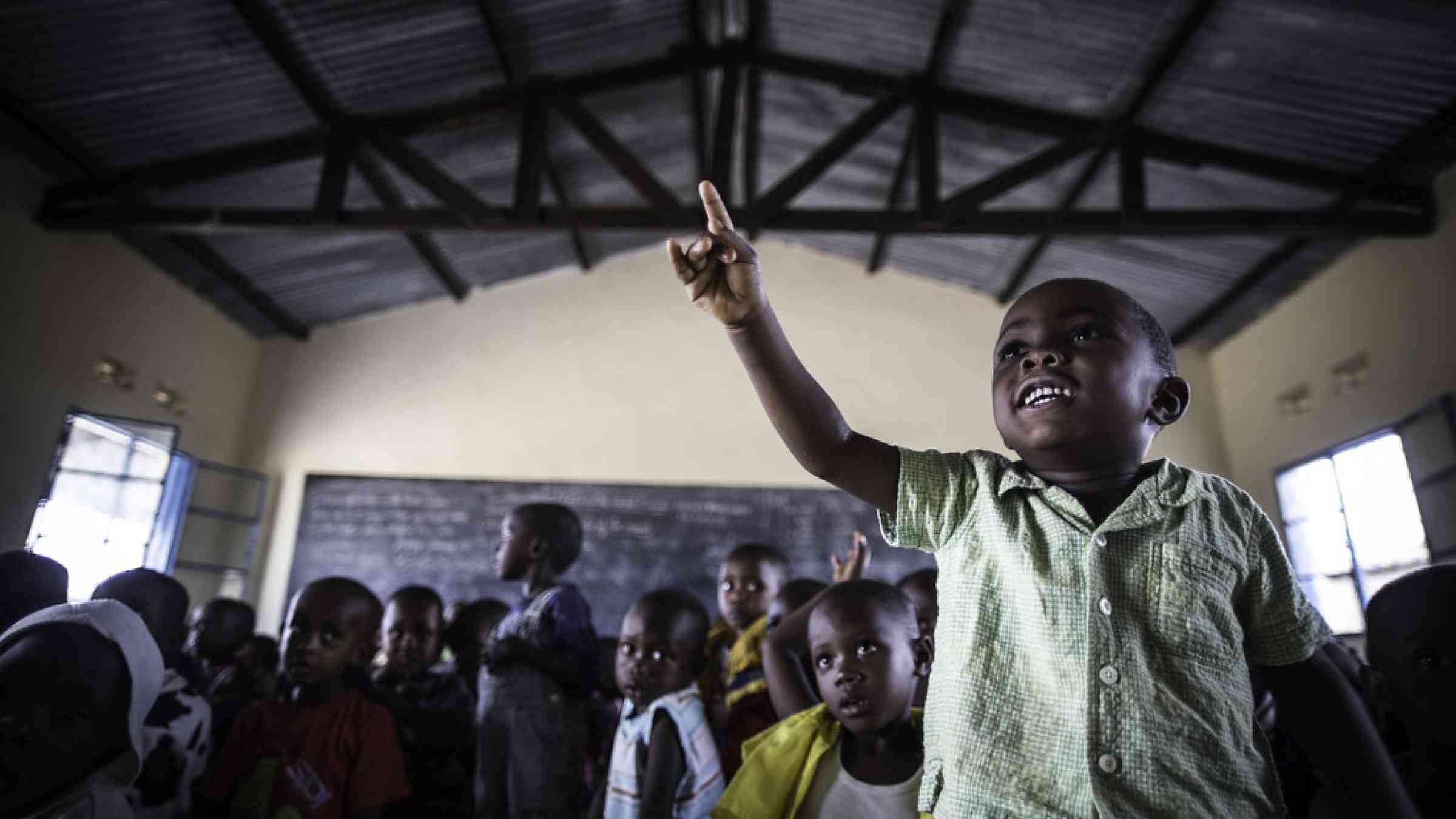
Extreme rainfall events and flooding are devastating hazards in Burundi.
Rain falls on the country's densely populated hills and in the Lake Tanganyika basin, leading to flooding that causes loss of life for people and animals unable to escape, and damage to homes, infrastructure, and crops. Further impacts include outbreaks of water-borne diseases and the loss of livelihoods, among others.
Yet many aspects of extreme rainfall events are forecastable in Burundi. In 2020, the World Food Programme (WFP) and the Burundi Red Cross launched a new partnership-based project to develop anticipatory actions for various hazards, including floods caused by extreme rainfall, and for drought. This offered a new approach to complement the country's traditional disaster-response cycle.
The project was set up with an innovative organizational structure, with WFP, the Burundi Red Cross and the Burundi Meteorological Agency (Institut Géographique du Burundi/IGEBU) working in close collaboration to coordinate one initiative. This structure was established with the aim of strengthening each partner's anticipatory action expertise and programmes. In addition, the Red Cross Red Crescent Climate Centre has provided technical support and training to the teams since the early days of the project.
Three years of hard work - in terms of both technical progress and advocacy - by the partners have resulted in an operational anticipatory action programme for extreme rainfall, with similar work having begun for meteorological droughts. This is the result of a concerted effort towards intra-agency coordination and collaboration.
Acting ahead of extreme rainfall
In October 2023, almost as soon as the project ended, extreme rainfall was forecast for the country, and at the threshold level for triggering anticipatory action.
- On 31 October the IGAD Climate Prediction and Applications Centre forecast exceptional rain over Burundi for the coming week, particularly in the central regions of the country. The threshold for activating the Early Action Protocol (EAP) for extreme rainfall was reached and WFP and the Burundi Red Cross decided to implement the planned anticipatory actions.
- On 8 November IGEBU confirmed the forecast of extreme rain for the next three days over a large part of the country, and then communicated this information.
- From 10 to 14 November the partners communicated early warnings and cash distributions were made among target populations.
- From 26 to 29 November flooding was reported in several localities in the Commune of Rumonge, notably on the hills of Birimba, Minago, Muhuzu, Mugomere and Muturigwa.
Early warnings and cash assistance for at-risk communities
Teams from the Burundi Red Cross and WFP carried out the anticipatory actions outlined in the EAP between 10 and 14 November. These took place in the communes of Muhuta and Rumonge, which had been identified as particularly at risk, and within 100 meters of the flooded rivers and 150 meters of Lake Tanganyika. More than 10,000 people received information about the floods, while 1,780 households received anticipatory cash payments of around 82 US dollars to meet their immediate needs.
Learning from the activation
The first full anticipatory action activation in a country is an opportunity to reflect openly on the successes and the missing elements, and to improve procedures ahead of the next activation. The Burundi Red Cross, WFP, IGEBU and their partners organized an after-action review in February 2024, which highlighted some important lessons.
From the conception of anticipatory action in a country to its operationalization, inter-agency collaboration and coordination are essential. In Burundi, the programme steering committee and working group were central to this coordination. For example, the WFP and the Burundi Red Cross used the same trigger to activate anticipatory action, which was developed with IGEBU's support in providing the necessary meteorological information.
Coordinated funding for anticipatory action is helpful. In the future, the Burundi Red Cross and WFP aim to have funds that can be released based on any trigger. At the time of the activation in 2023, the Burundi Red Cross's EAP for Floods was still awaiting validation, but the collaboration established through the project meant that WFP was able to disburse funds earmarked within its ECHO project. These were then used to support the populations identified as being at risk from the floods.
Community groups are critical structures through which anticipatory action can be decentralized and localized. As part of this project, around 40 Community Disaster Risk Reduction Committees were trained to use the Enhanced Vulnerability and Capacity Assessment tool. This has since been used to guide community action plans, including anticipatory actions that should be implemented when the imminent risk of a prioritized hazard is announced. This approach enables communities to act themselves, while the most vulnerable members receive additional support from humanitarian actors.
National meteorological services are key partners in the development and monitoring of triggers. Once a trigger has been developed by humanitarian agencies and scientists, there must be continuous monitoring of weather conditions against the established trigger thresholds. Fortunately, in Burundi, relations between the IGEBU, the Burundi Red Cross and WFP have been strengthened and enhanced through the project, enabling this information to be communicated on a regular basis. However, a formal trigger-monitoring system is still lacking; this is needed to avoid the risk of missing extreme events.
This first activation in Burundi was both a success and an opportunity to see which elements of the country's anticipatory action plans would benefit from adjustment. WFP, the Burundi Red Cross and their partners are now acting on these lessons to improve future activations.